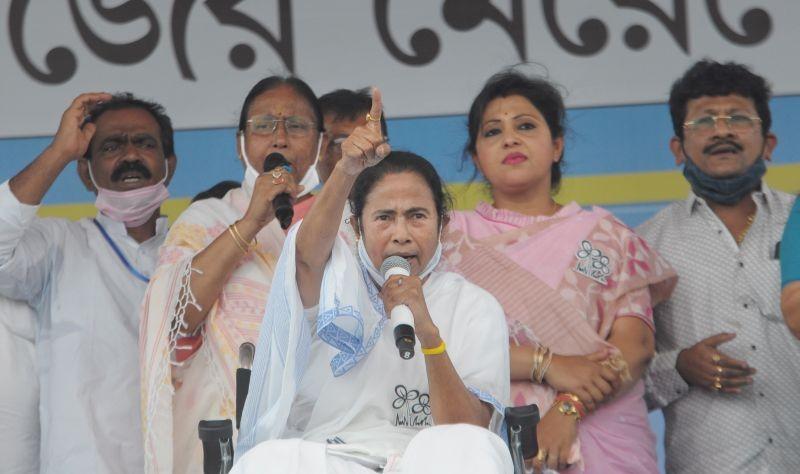West Bengal: Amid Protests TMC Govt Decides to Implement NEP in Colleges

Image Courtesy: PTI
The West Bengal government has announced its decision to implement the New Education Policy (NEP) in colleges starting from the current year, despite protests from significant stakeholders. An unsigned press note was released, informing the public about the government's choice. It did not disclose the recommendations of the high-powered committee led by Jadavpur University Vice-Chancellor, Suranjan Das.
The committee had been tasked with determining whether to adopt the NEP in the state. Although the committee submitted its report on time, its contents remain undisclosed.
NewsClick spoke with well-known educationist and Right to Education Forum convenor Professor Ishita Mukherjee, who expressed her serious concerns on the state government’s move to implement the NEP.
"Earlier, we heard from the West Bengal government that they would not accept the New Education Policy. They formed several committees comprising esteemed educationists to decide the education policy for our state. However, the reports of these committees have not been made public,” she said.
Mukherjee also flayed the government for not consulting key stakeholders.
“The government did not consult the stakeholders in the education process, including teachers, educationists, guardians, employees in educational institutions, and academic officers. Suddenly, we came across an unsigned press brief announcing the commencement of a four-year undergraduate degree course from the current session,” said the professor.
Mukherjee also pointed out the complete lack of preparation and infrastructure to implement the NEP.
“We question the lack of preparations, classrooms, recruitment of new teachers, and laboratories. The infrastructure of our undergraduate colleges is woefully inadequate. Even with good intentions, infrastructure cannot be built overnight. Credit transfer is practically impossible for students from distant rural areas” she said.
The professor noted that a majority of students and their households were facing immense economic hardships and would be excluded from the process.
“This process of forced and intentional privatisation will exclude the majority of students and turn education into a profit-making venture. This is highly condemnable," she added.
Meanwhile, the Students Federation of India (SFI) has strongly criticised the state government's attempt to implement the new education policy on campus. Recently, the West Bengal State Committee of SFI organised a day-night protest at College Street in Kolkata to highlight the impact of the NEP on future learners.
"The state will never allow the Central government's NEP to be implemented. The NEP severely undermines the education of disadvantaged students across the nation. The four-year degree programme is a mere act, and the one-year master's course is inadequate," the SFI said.
SFI state secretary Srijan Bhattacharya said both the Trinamool Congress (TMC)-led state government and the Bharatiya Janata Party (BJP)-led Central government were in agreement regarding NEP. He referred to them as “accomplices” and condemned the state government's recent efforts to implement NEP in West Bengal as a clear example.
Bhattacharya claimed that NEP was driven by the ideas of Rashtriya Swayamsevak Sangh (RSS), the BJP's ideological parent. He highlighted how including "Manuwadi versions" in students' history syllabi exemplifies the RSS's influence on education. Furthermore, he pointed out that NEP's incorporation of various credit points in the four-year degree programme discourages students from completing their education, enabling them to exit the system with only a diploma.
The student leader warned that these diplomas would hold no value, rendering graduates worthless to employers and perpetuating the supply of cheap, uneducated labour in industries.
Get the latest reports & analysis with people's perspective on Protests, movements & deep analytical videos, discussions of the current affairs in your Telegram app. Subscribe to NewsClick's Telegram channel & get Real-Time updates on stories, as they get published on our website.
























